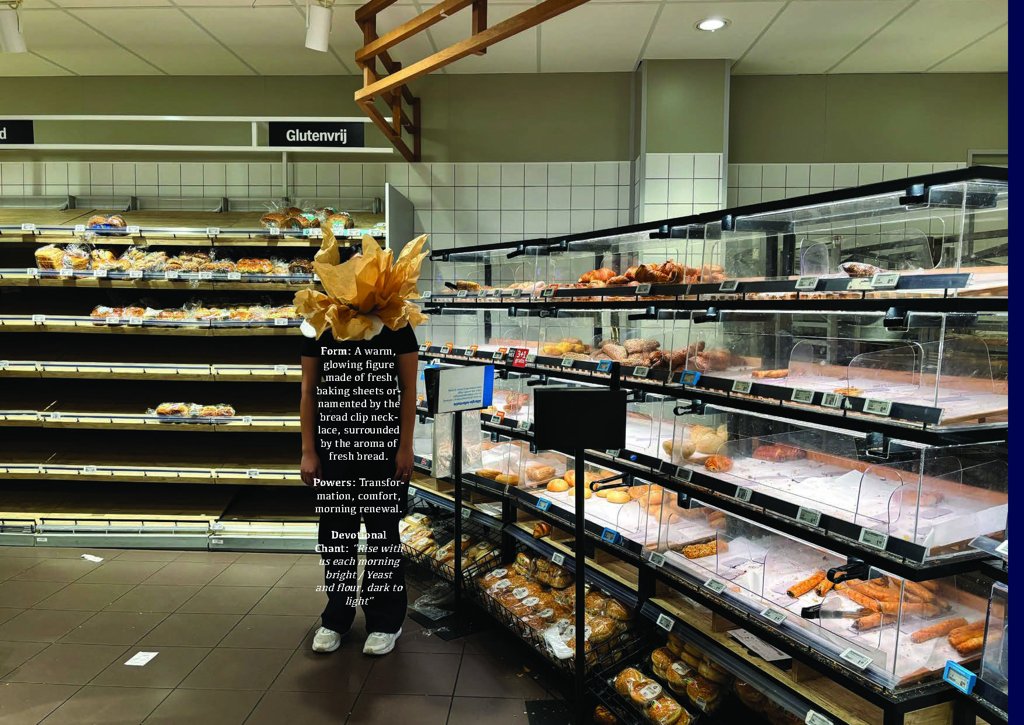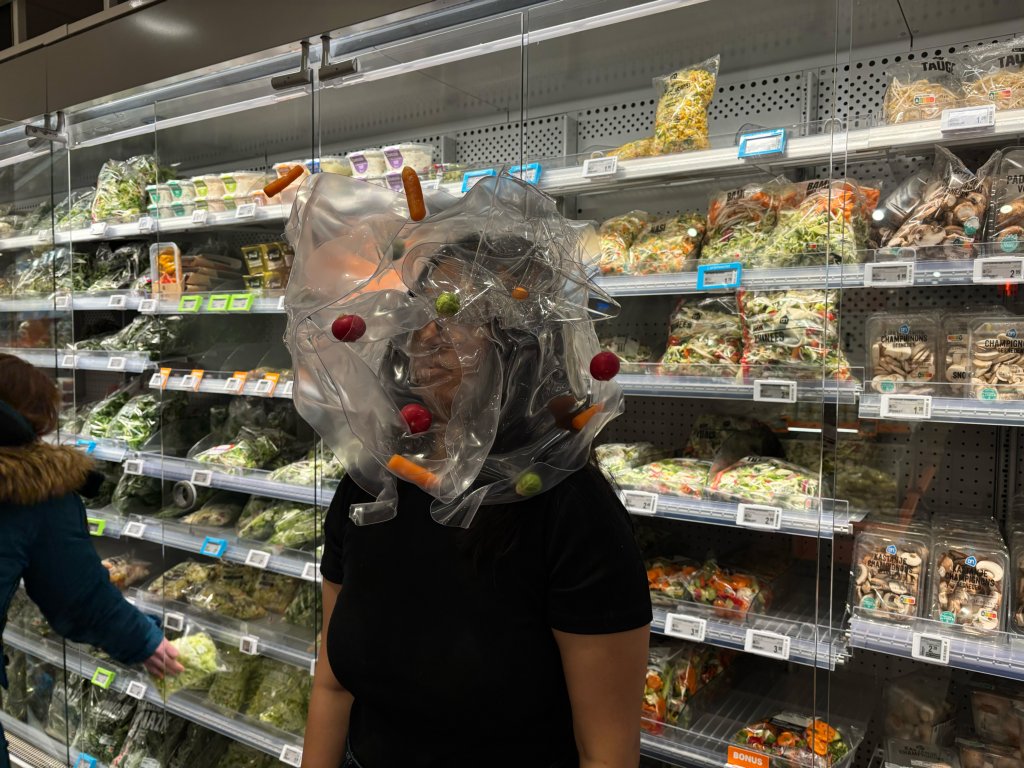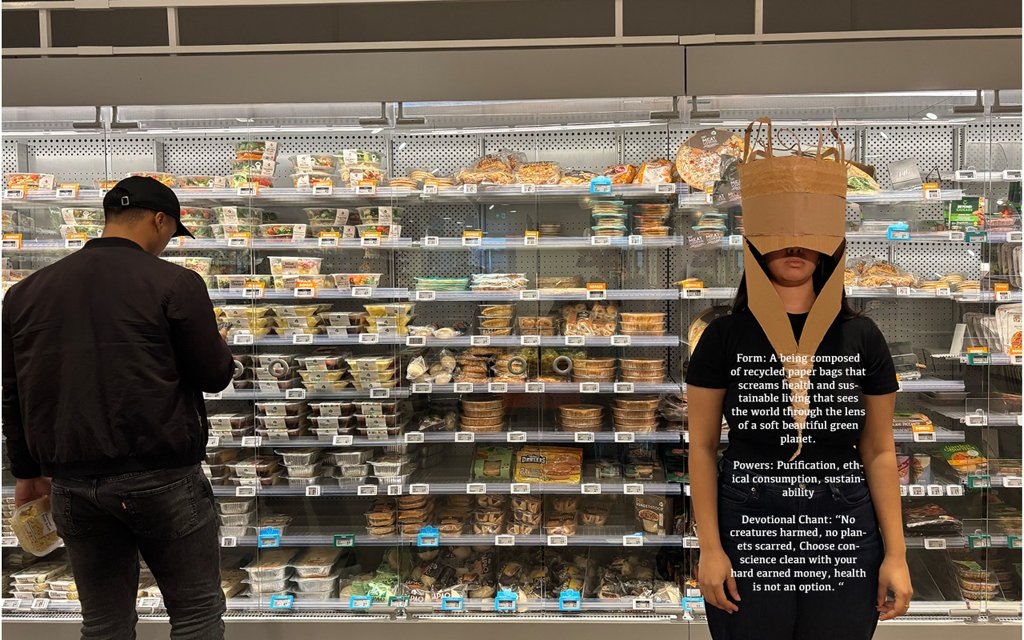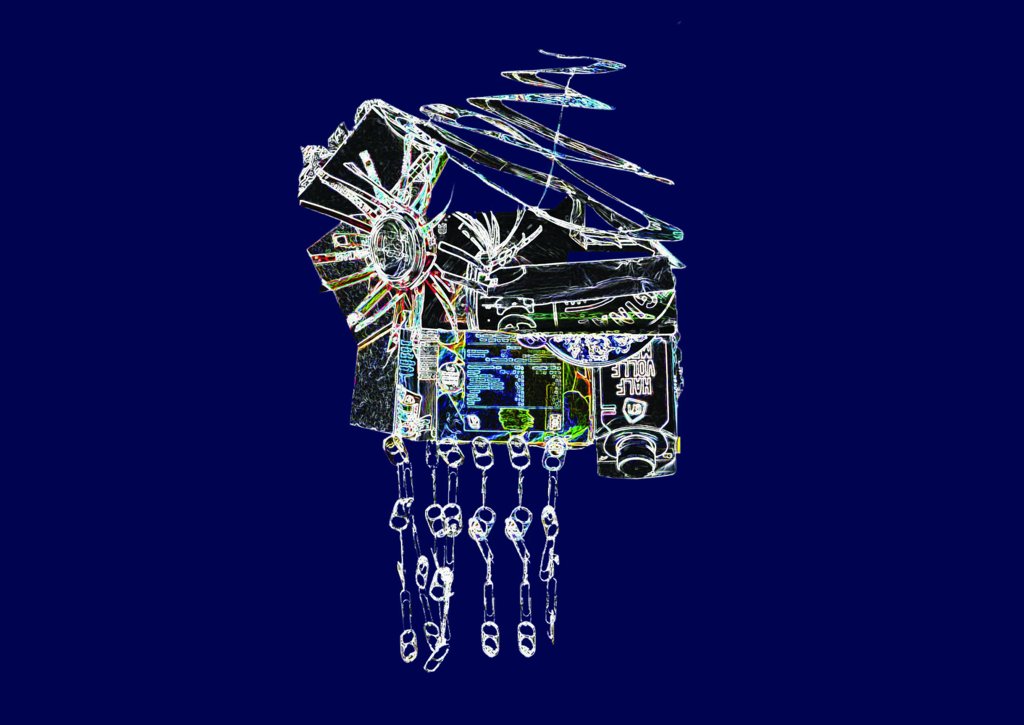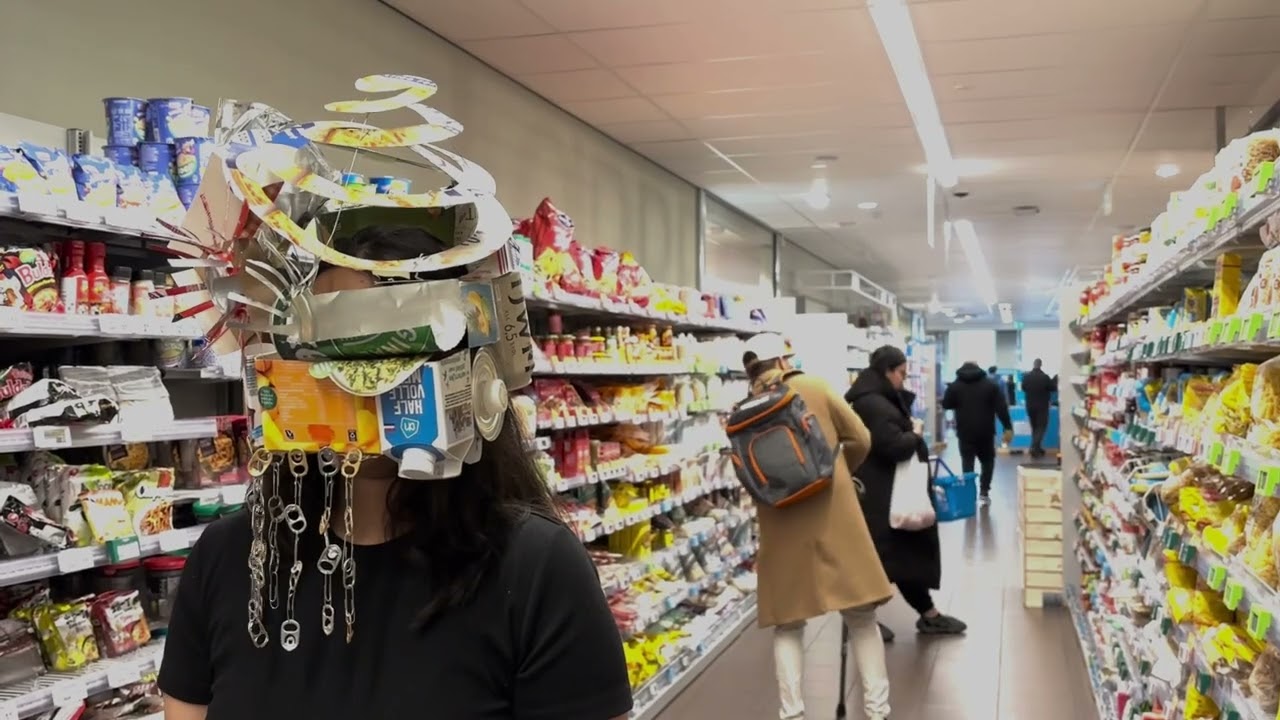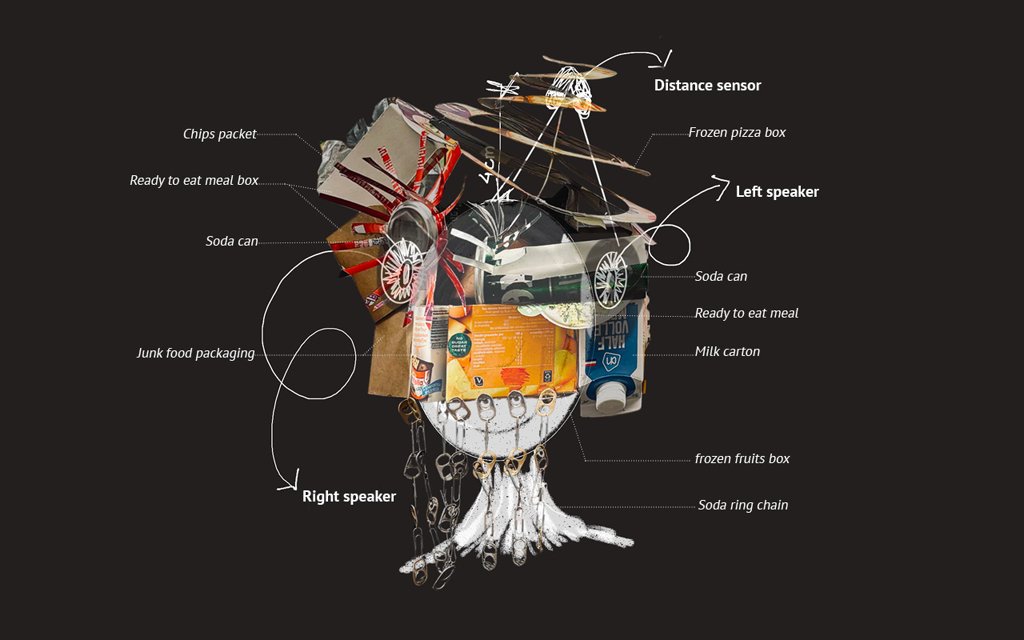In today’s cities, people are often distanced from the origins of their food. Processed products and convenience meals dominate everyday life, with our choices directly affecting the planet, our health, and social fairness. To shape consumer habits, today’s food system relies on large-scale production, global trade and advertising, and supermarket design.
We asked: how can design question these commercial practices, raise awareness, and encourage more sustainable and informed ways of eating?
We investigated supermarkets by observing shoppers, studying packaging, and categorizing foods, questioning how design, graphics, and layouts influence consumer behaviour and beliefs. Inspired by ritual adornments like crowns and masks, As our head is the seat of our perception, we then created four headpieces to show how consumerism shapes thought and devotion.
The four headpieces take the form of oversized “food deities” made from boxes, plastic, and labels. These humorous, grotesque headpieces parody food worship, exposing the rituals and blind faith embedded in consumer culture. By transforming ordinary shopping into a symbolic act, they invite reflection on where food comes from, how it is marketed, and the consequences of our choices.
Each deity embodies a theme: The Processed One critiques convenience foods; The Rising Divine addresses industrialized baking; The Fresh Plastic Spirit satirises packaging’s illusion of freshness; and The Pure Guardian questions corporate promises of “ethical” or “pure” products.
By reframing supermarkets as spaces of ritual and worship, we expose how design, packaging, and marketing influence consumer values and behaviours. Rather than relying on statistics or fear, the deity headpieces use humour, irony, and interaction to spark reflection. They reveal hidden systems of manipulation, encouraging audiences to see their role in shaping food culture and to make more responsible choices.
Our project’s strength lies in making these invisible mechanisms visible through immersive, satirical experiences that provoke self-awareness and inspire reconsideration of everyday choices. However, the metaphor may not resonate equally across cultures, and the work offers critique more than concrete solutions. Ultimately, it serves as a catalyst for dialogue, inviting collective reflection on food, consumerism, and sustainability.
